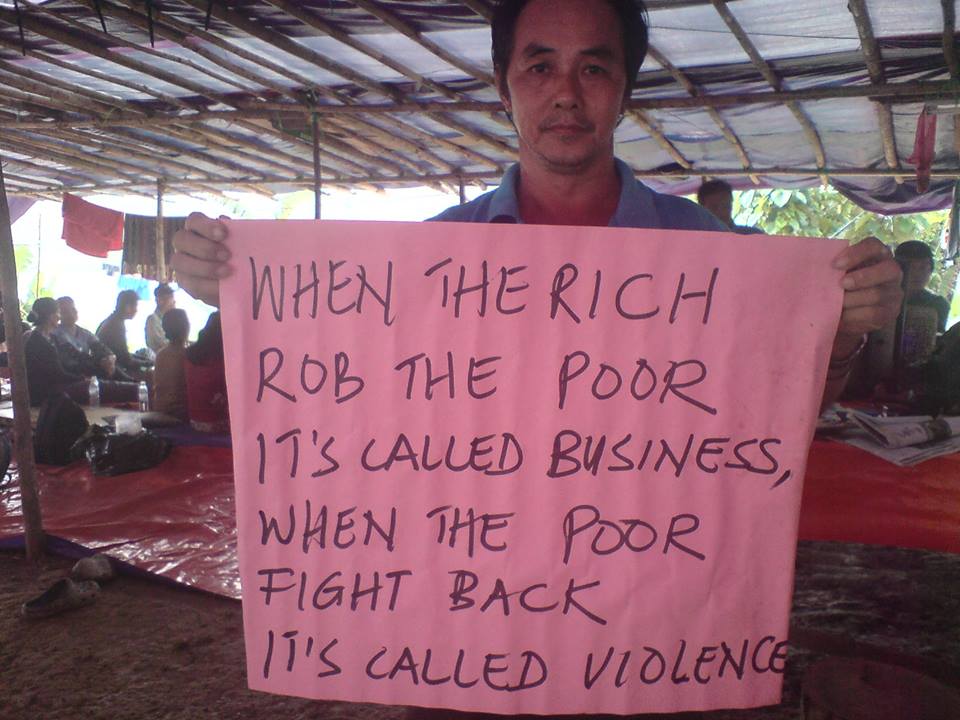
We have the pleasure of inviting you to the second edition of the summer school on degrowth offered by ICTA and Research & Degrowth, this year with environmental justice as a special focus. The summer school will take place between the 6th and 15th of July at the premises of Universitat Autonoma de Barcelona and the social centers Can Masdeu (Barcelona) and Can Decreix (Cerbere), France.
As a way of refreshing your understanding of the term, degrowth represents a cluster of definitions. The most overarching one is the escape from growth as self-perceived obligation, and an eternally correct and single path out of the crisis, misery and environmental degradation. Degrowth evokes also the recognition of collective limits, while challenging borders and closure. It challenges the artificial distinction between life and work, while critically reviewing technology and market-based solutions to social needs. It calls for an economy of care, gift and conviviality, rather than an economics of scarcity and trade. In that sense degrowth challenges not only the outcomes but the very spirit of capitalism.
Environmental justice is a key source of inspiration for degrowth both as a movement and field of studies. In this edition of the summer school we will try to reestablish the links between claims from communities in resistance against environmental injustice around the planet and the internal and external, environmental and social sources of degrowth.

Escaping the vocabulary of growth also means avoiding its toxic penetration in the Global South. Rather, it means paying attention to voices in the South that advocate finding original, innovative, culturally specific and individually-constructed paths to buen vivir, paths that lead to qualitative improvements in the field of health, education, social services and environmental conditions.
The alliance between movements in the North and in the South requires identifying, mapping and exploring both common sources and practical links that help to break barriers and borders. In the course we will undertake a critical revision of the proposals being put forward in the name of degrowth deepening their logic and extent in the light of environmental justice. Like last year, the summer school will bring together leading scholars in the field of degrowth and environmental justice, among which Joan Martinez-Alier, Giorgos Kallis, Beatriz Rodriguez-Labajos, François Schneider together with well-experienced facilitators to offer modules that allow for interactivity and collaborative work.
Course structure and description: towards participatory implementation
The course will consist of two interconnected parts. The first will take place at ICTA, one of the most reputable environmental research institutes in Europe, where we will build on the foundations of environmental conflicts and degrowth, taking a wider set of perspectives and teaching methods. The second one will take place at Can Decreix (Cerbere), a center dedicated to experiencing degrowth. There, attention will be paid to proposals, practices, coherence and the existence borders through the prism of degrowth and environmental conflicts.
Selected lectures will be complemented by work in small groups, on-site visits, discussions, get together and team building exercises. The implementation of the course will be done in a way that participants with particular skills and expertise share their relevant knowledge to the rest of the group.
The course will be academically certified with ECTS credits. A detailed program will be published by the end of February.
The Summer of Degrowth
This summer school does not come on its own. It is part of a consorted effort around Europe. Two summer schools are taking place in Italy and in Italian, one in Trieste (June 16-18) focusing on degrowth and solidarity economy and another in Torino (first week of September) on urban metabolism and labour. Please contact Mauro Bonaiuti (mauro.bonaiuti {at} unito. it) for more information.
After the impressive 5th international conference on degrowth in Leipzig last year, a summer school is also taking place in Germany (close to Cologne, approximately August 9-15, 2015). It will be held in English and in German and focus on the links between climate justice and degrowth. It will take place in cooperation with the Rhineland climate camp and link with a mass action of civil disobedience against lignite coal mining. The Rhineland summer school will not have a purely academic focus. It will link lectures and several-day-courses in a GAP-style (in the mornings) with practice (such as maintaining the camp, training for and participating in protests against lignite mining). Please contact info {at} degrowth. de or consult www.degrowth.de for more information.
At the Barcelona school we will establish links and share inputs for these other events, so that there is a thread of knowledge which is gradually woven in a colourful degrowth tapestry.
 Application
Application
The summer school on Degrowth and Environmental Justice is designated for PhD and master students, as well as for senior researchers. Deadline for applications is April, 30th, 2015. Please send a CV and maximum one-page cover letter explaining your motivation and background to Fulvia Ferri (fulviafe {at} gmail.com). Results on selection of participants will be announced by the 15th of May.
More information on the school will soon be placed at www.degrowth.org. For quests regarding content, please email Filka Sekulova (filka {at} degrowth. net), Beatriz Rodríguez Labajos (beatriz.rodriguez {at} uab. cat) or Claudio Cattaneo (claudio.cattaneo {at} liuc. it).
We aim at having a total of 30-35 participants from a diversity of geographical regions and academic disciplines. Once selected you are expected to present your research and work on an assignment in small groups during the course. More information on presentations, reading material and assignments will come in the first week of June.
Costs
The participation fee consists of 100 Euro and does not include accommodation and food.


